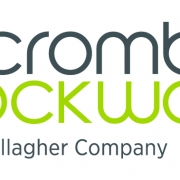Agreements for Sale & Purchase of Property
The Agreement for Sale and Purchase of Property that’s used for the vast majority of property transactions is the Real Estate Institute of New Zealand / Auckland District Law Society (REINZ/ADLS) Agreement for Sale and Purchase and the form is reviewed regularly to ensure it remains an effective agreement as times change. Changes take into account things like allowing for electronic (emailed) forms as well as forms sent by fax or posted and also various changes required as a result of law changes.
The latest update happened late last year and the current version of the agreement is now the 10th edition of the REINZ/ADLS Agreement for Sale and Purchase. (click this link for more detail)
The most significant change, and one that may catch buyers out, relates to using a finance clause to withdraw from a purchase offer. People who want to withdraw from a housing deal due to being declined finance now have to prove they are unable to get the money.
If a finance condition is inserted but money can’t be secured to settle the agreement the purchaser’s word was generally enough for them to pull out of a contract. But under the changes that took effect on 6th December 2019 purchasers must provide evidence, generally by providing a letter or email from the bank.
This is a significant change to the sale and purchase agreement with significant implications for prospective purchasers who rely on a finance clause as a ‘get out of jail’ card, if purchasers can’t provide evidence they were unable to obtain finance they could be forced to proceed with the purchase or face other legal action by the vendor.
In the older form you could specify a lender in a finance clause in the Sale & Purchase Agreement, this option has been removed in the new form. The new clause in the fine print in the REINZ/ADLS 10th edition form removes the reference to a particular lender. It now requires a purchaser to provide evidence, if required by the vendor, that they had taken reasonable steps to obtain finance on satisfactory terms.
Along similar lines to the changes to the Finance clause is the Building Inspection Report clause that many prospective buyers obtain, in the updated agreement if you cancel the agreement because of an unsatisfactory building inspection report you are required to share the report with the vendor. This removes another ‘get-out-of-jail’ option some people have used in the past.
Other changes include an optional toxicology report condition, a new process to resolve compensation if there are disputes between vendors and purchasers and fixtures and chattels have been removed and replaced with new definitions and warranties.
GST clauses have been revised, the time-frame for deposits being released has been clarified, references to fax machines are removed, tenancy documents must now be provided by the vendor on the settlement date and various other changes to language and formatting have been made.
It has always been essential buyers take legal advice before signing any sort of property sale and purchase agreement rather than relying on standard Further Clauses inserted by real estate sales people, this change makes it even more important.
The bottom line is to make sure you deal with a reputable Real Estate Agency so you are given good advice and don’t sign any agreement for the sale and purchase of real estate before you have taken legal advice.











